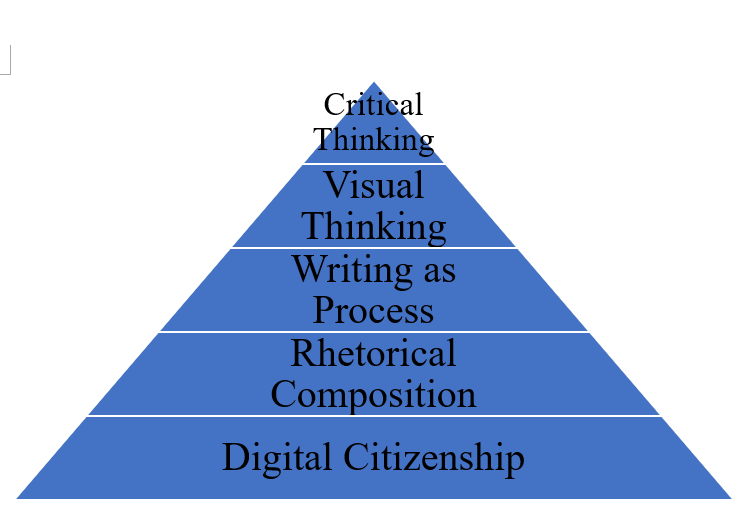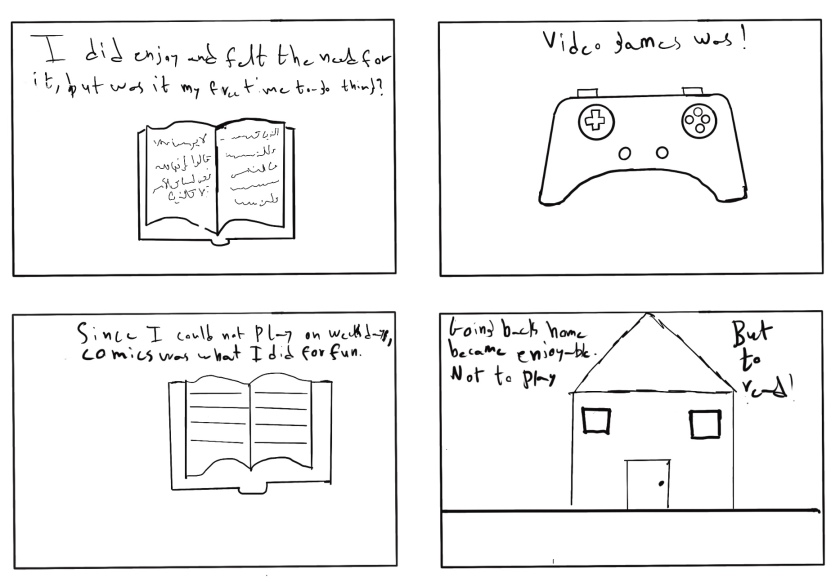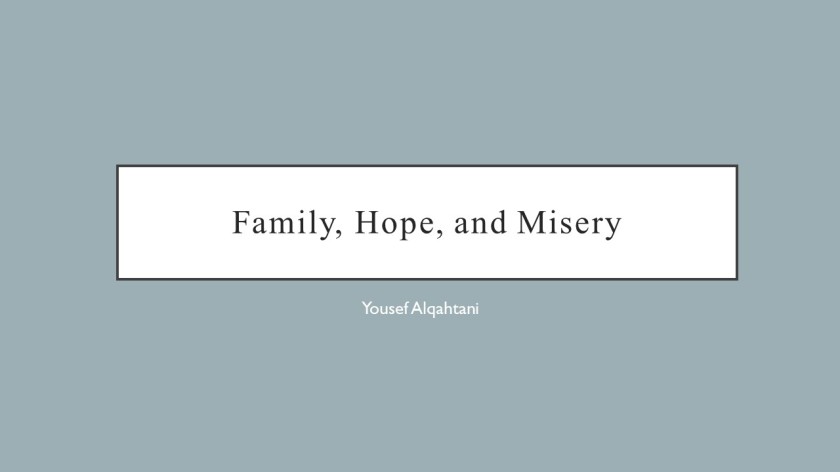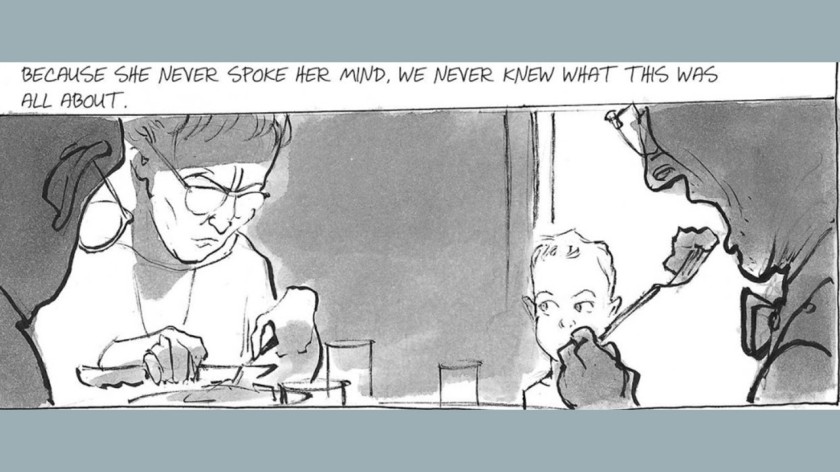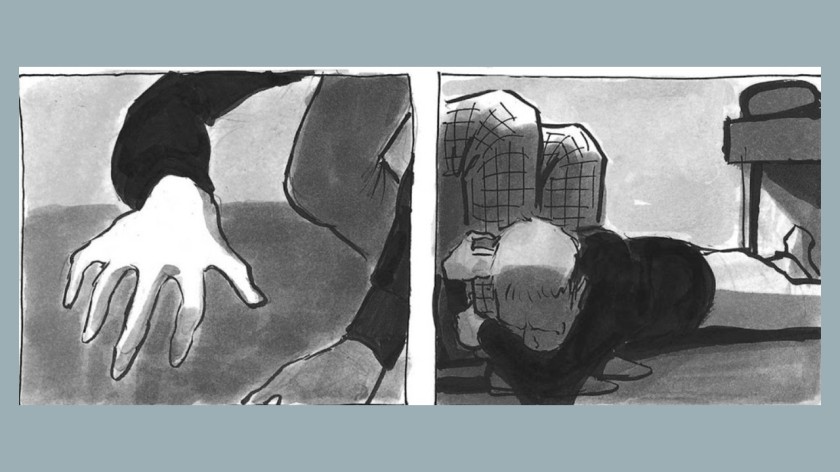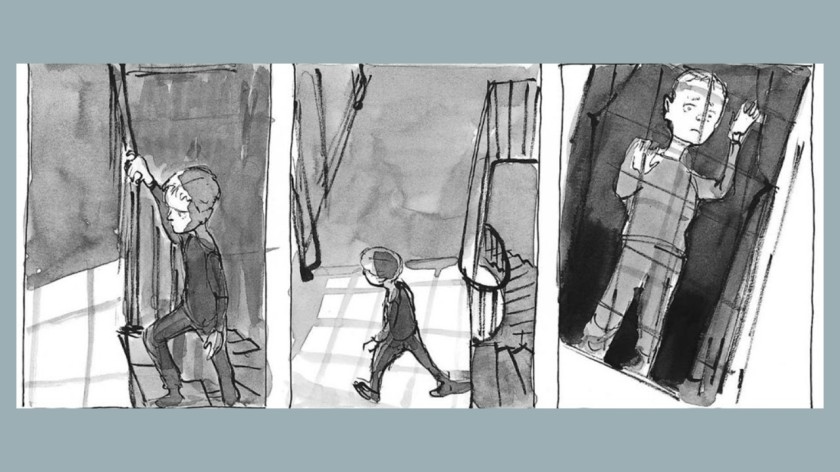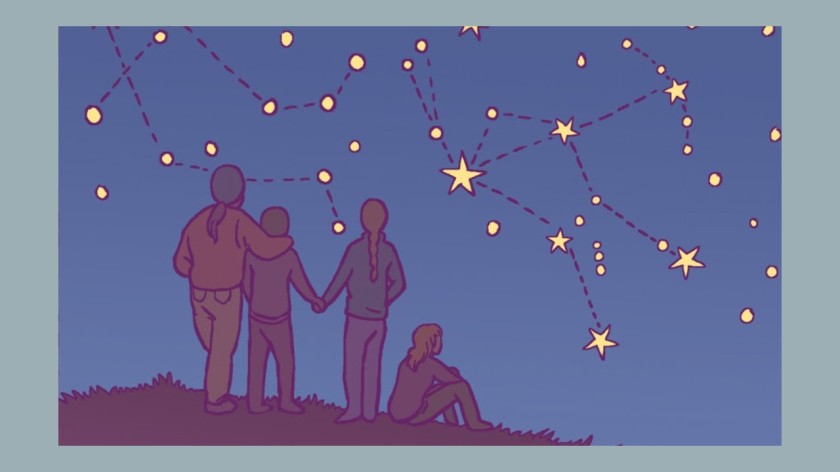Portfolio and Reflection Letter
Yousef Alqahtani’s Archive of ENGRD101 with Prof. David Morgen. Spring 2022.
Having grown up in Saudi Arabia, studying in a school where the final English test was rewriting and memorizing a few sentences-long “essay,” this class had been more challenging than I anticipated. Nonetheless, it is by far what most pushed me out of my comfort zone, improving my ability to think critically, analyze texts, and have a much clearer picture about writing generally and the art of comics more specifically. While I greatly struggled throughout the semester, I would go as far as to say that no class (not even STEM classes) enlightened me with a newer perspective than ENGRD101-24. By going over each learning outcome and analyzing the literacy narratives, I will attempt to show the improvement gained by utilizing this class and its assignments.
Rhetorical composition is where one understands the audience, the purpose, and the constraints of composing texts. It has mainly been understood through the process of creating Parents and Dysfunction text, where I tried to make an analysis and a comparison of Stitches and Fun Home. In the process, I utilized a page from each text to compare the text, the drawing, and the larger theme in the two books. I understood the audience, purpose, and constraints while writing and reviewing Parents and Dysfunction. This is due to my attempt to proofread every single idea I try to include by requesting help from a potential part of the audience (a peer of mine, for example), which was not the case earlier in my writing experience. For instance, in the text, I tried to raise that “I felt more emotions in Small’s choice of image” since David Small’s Stitches was more emotional to me. However, since I was unsure of the best way to put it, I felt the need to understand my audience thoroughly. I asked one of my peers to discuss this point, given that he is a part of the potential audience. Through the discussion, I understood the need to thoroughly illustrate my point, leading to a better piece of writing. The idea of understanding the audience is something that will go with me in any other writing assignment that I encounter in the future.
The best way to understand critical thinking and reading resulting in writing is by ethically adding someone else’s idea into one’s work. I attempted to utilize Hillary Chute’s essay in Parents and Dysfunction’s text. Given that the American concept of citation is different than where I came from (not necessarily in a negative way, just a difference), I found it hard at first to incorporate others’ ideas in an essay. Nevertheless, I cited a sentence from Hillary Chute’s Why Comics?: From Underground to Everywhere successfully. Although it sounds and looks simple for a native English speaker, learning a seemingly simple foreign concept of a foreign language was not as easy as it seemed to be for me. Regardless, formulating such an essay while also integrating another text eventually worked.
When it comes to writing as a process, the concept could be explained as critiquing one’s and others’ works, realizing that it takes time to make a text successfully. I would say that I understood this while working on the literacy narrative. While Literacy Narrative 1 had many issues, talking with Prof. Morgen and working with the writing center helped me overcome those issues, making my Literacy Narrative 3 a much better text. My main problem was jumping from one topic to the other throughout Literacy Narrative 1, which seems to result from some form of attention deficiency, though it could be unrelated. Since simply outlining before writing the essay did not work for me, I applied reverse outlining, which was recommended to me by Prof. Morgen. Reverse outlining is simply writing in my own way, leaving the essay for some time, coming back to review and make an outline, and then rewriting the paper. Through this method, I was able to write in a much more acceptable way than earlier. Consequently, writing as process was learned to an extent with which I am satisfied.
Visual thinking was to me one of the most challenging skills to acquire. Given that we read and analyzed plenty of texts, I naturally have improved my ability to analyze texts by myself. However, I still struggled to arrange my own pieces. While some of my peers have apparently found sketching/drawing assignments to be simple, I struggled in each and every one of them, as evident in my work since early in the semester. The main assignment through which visual thinking became better was Literacy Narrative 2, where I had to imagine how to incorporate the written literacy narrative into the drawing. I applied the method to combine the text by imagining the audience’s thoughts about a particular sentence. For instance, in the second panel of the first page, I decided to draw a mosque, relating it to my habit of memorizing the Quran daily as a child. Although I know this seems reasonably simple for many, I found it extremely difficult to think of what to draw. Luckily, this has been much improved since.
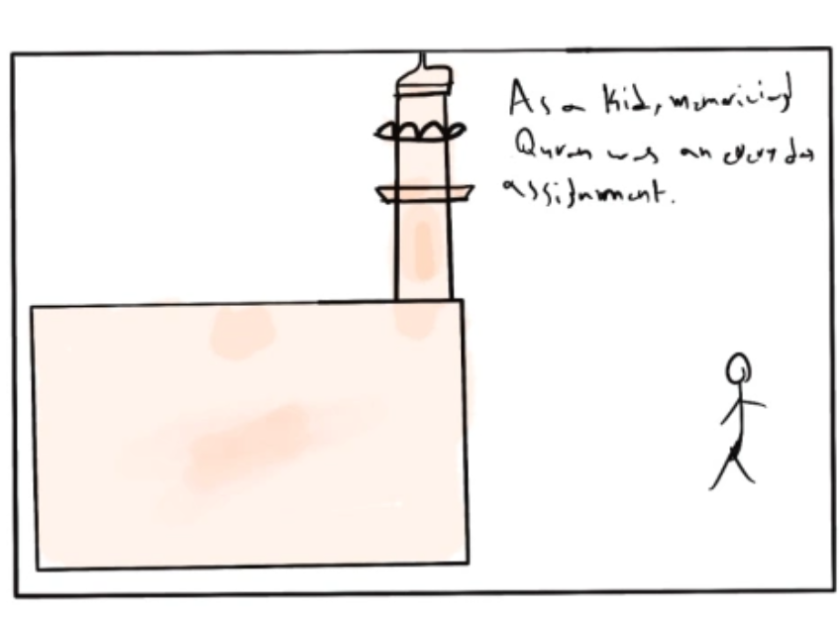
When it comes to digital citizenship/digital identity, this WordPress site will result from this learning outcome since WordPress reflects this learning outcome the most. Although I would describe myself as fairly literate in technology, dealing with WordPress was not straightforward. For example, when I had to add menus, I could not do so, and the option was not available. It took me months to figure out how to allow adding menus by finding a hidden Reddit post stating that some themes do not allow menus. However, I am now in a better position regarding sites such as WordPress and generally utilizing technology. My WordPress site would hopefully show such an improvement.
I have gained significant improvement in writing and dealing with texts, all thanks to this class. Achieving the learning outcomes and the extent to which the literacy narratives have been effective in improving my writing ability are two accomplishments I am grateful for. Even though it was not an easy ride reaching this point, it is a ride that will forever be remembered as my cornerstone of improvement in writing.

